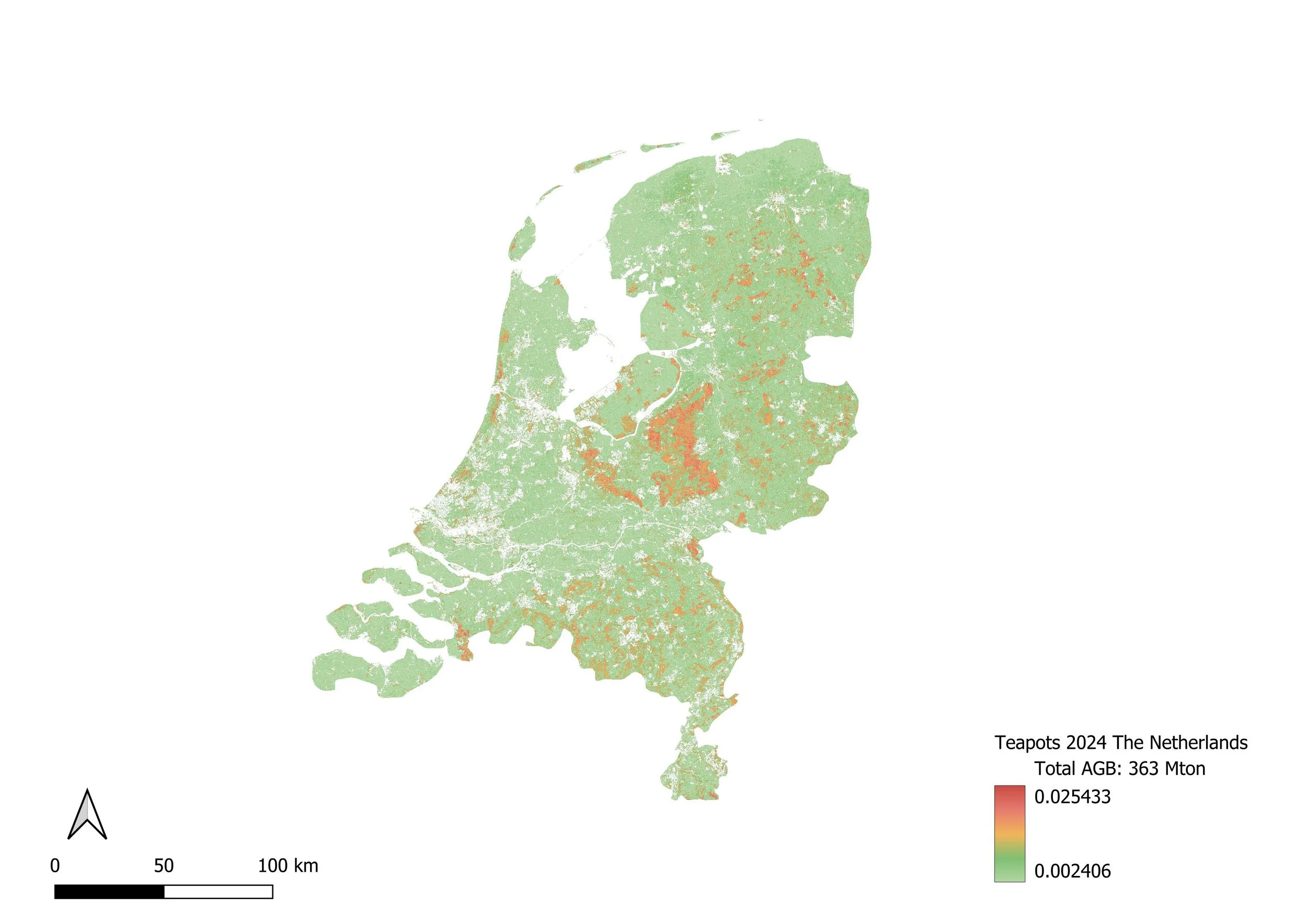Virtual Pilots: Mapping Residual Biomass in the Netherlands
Our partners, Uptoearth, have completed the first high-resolution mapping and estimation of residual biomass in the Netherlands, one of four virtual pilot sites designed to replicate and validate TEAPOTS models under diverse regional conditions.
The study analysed 1,165,577 hectares of agricultural land across the country, including arable (29%), fallow (1%), and grassland (70%) areas. Using satellite-based remote sensing, crop parcel data from the Basisregistratie Gewaspercelen (BRP), and advanced geospatial modelling defined in Deliverable 3.1, researchers generated 10 m-resolution maps detailing both Above-Ground Biomass (AGB) and residual biomass availability.
The results are striking:
Above-Ground Biomass (AGB): 51.85 million Mg
Residual Biomass:
▫ Arable lands (straw, stalks, roots, residues): ~5.52 Mt
▫ Fallow lands (crop residues & leftover biomass): ~0.015 Mt
▫ Grasslands (organic residues, grasses, leftover biomass): ~10.42 Mt
➡ Total residual biomass (2024): ~15.96 Mt
Given the flat orography of the Netherlands, a 100 % transportability rate was estimated, reflecting minimal topographic barriers to biomass collection and logistics.
This assessment provides critical insight into the spatial distribution and recovery potential of biomass feedstocks that can support renewable energy, biochar production, and composting — key components of the TEAPOTS Integrated Solution (TIS). The findings also demonstrate how advanced GIS and AI-based models can guide future regional strategies for sustainable biomass valorisation.
The Dutch virtual pilot is part of TEAPOTS’ broader replication effort, which includes additional sites in France, Germany, and Northern Italy. Together, these pilots enable the project to test its integrated solutions across varying agro-climatic and market conditions, contributing to the scalability and exploitation of circular bioenergy systems in Europe.
All maps and datasets will soon be available on the TEAPOTS Digital Platform (TDP), offering open access to researchers and practitioners interested in biomass potential and resource management.

